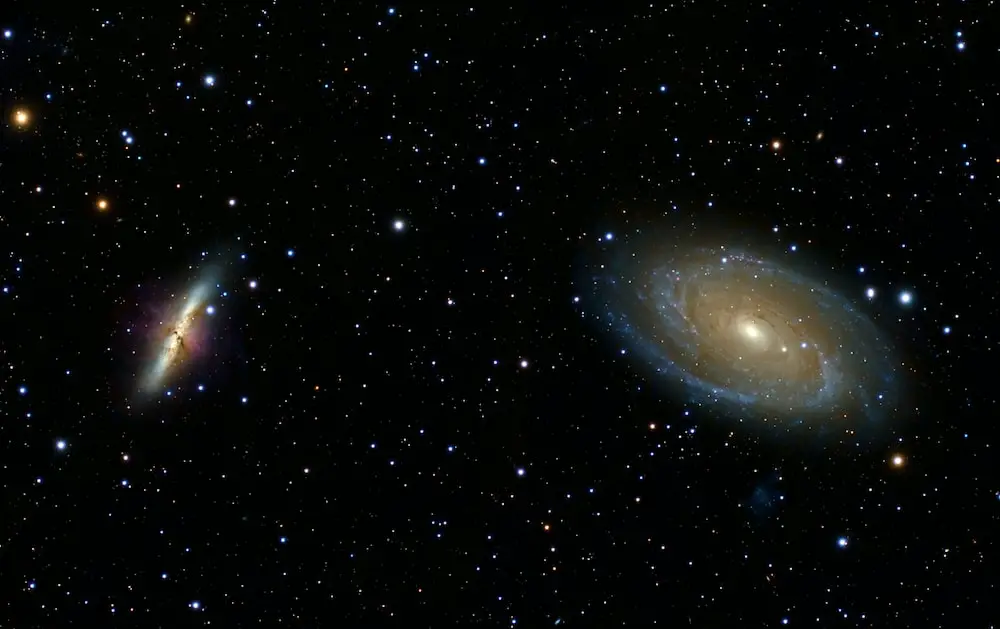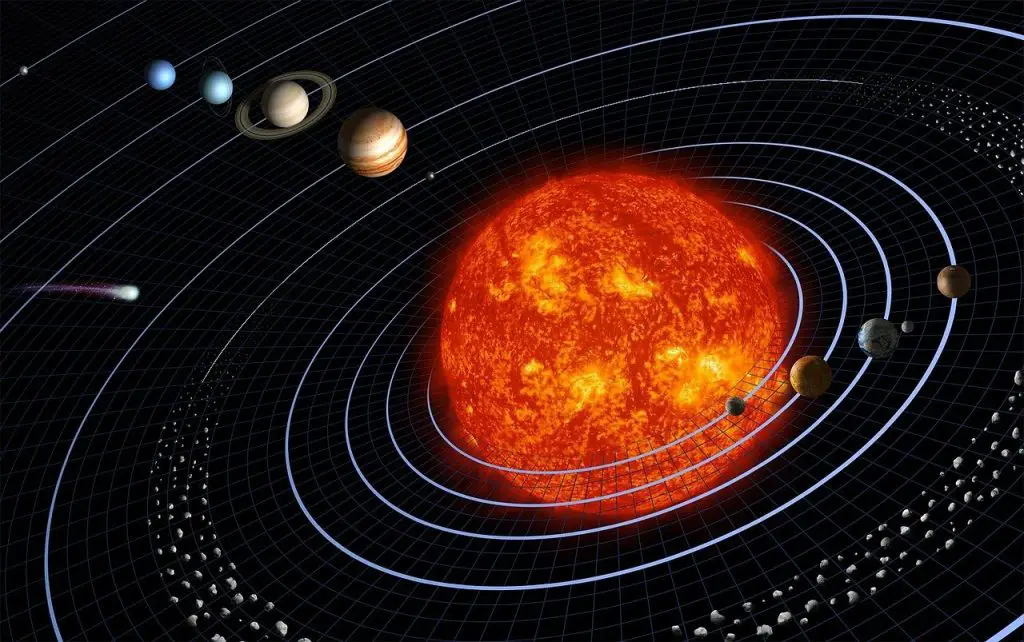For years, scientists believed that nothing can go faster than light speed. However, astronomers have continued to look deeper into the cosmos to understand how the universe works. Well, you may be wondering whether the universe we live in is expanding. Yes, the universe we live in is truly expanding. Our galaxies are moving further away from each other with every passing day.
The distances galaxies are creating between them show how fast the universe is expanding. However, we could have not learned about the expansion of our universe without the assistance of a renowned Astronomer. So, who actually discovered that our universe is expanding? Is the Universe expanding faster than the speed of light? Continue reading to find out.
Why Universe is expanding faster than the speed of light
The speed of light is generally referred to as a known speed limit for the rest of the universe. Light speed is measured at 299,792 kilometers per second, implying that the speed of light travels at almost 300,000 kilometers per second. Any object traveling at this speed will surely orbit the Earth around seven and half times per second. This speed is known as the unchallengeable speed of the Cosmos.
Scientists have realized that our universe is constantly expanding through the lights reaching us from distant galaxies. This is why some galaxies have permanently remained out of our reach, as they are expanding so fast that their lights will never reach earth. Scientists are even suggesting that some galaxies that are visible to earth may likely disappear in the future, as their lights will stop reaching us from great distances.
The latest conclusion in which scientists estimated how fast the universe travels have shown that the cosmos is actually traveling faster than the speed of light. The estimation has it that the universe travels at 69.8 km/sec/Mpc, with one megaparsec equivalent to 3.26 million light years. at this rate of expansion, some studies predicted that the distances between entire objects in the universe will likely double 10 billion years from now.
It is important to note that Galaxies within the universes are not moving at this high speed. However, the space between galaxies is expanding at a tremendous rate. Theories surrounding the rate of expansion of the universe inspired scientists to come up with the idea of dark energy. We currently know that dark energy makes up 27 percent of the Universe. Scientists were able to estimate this based on the amount of energy the universe uses to be expanding at such a fast rate.
Who Discovered that the Universe is expanding?
For centuries, astronomers thought that the Milkyway galaxy is the end of the universe. But they never realize that other galactic bodies lie way beyond our home galaxy. However, American Astronomer Edwin Hubble opened our eyes to the vast universe we know today. He made numerous notable discoveries in the 1920s that changed improved astronomy and the human knowledge of the Cosmos.
In 1929, Astronomer Edwin Hubble announced his discoveries including the redshift of galaxies, which he believed to be moving directly proportional to the distance of the galaxies from the earth. His discoveries showed that celestial bodies that are farther away from Earth were moving away at a faster rate. He concluded his research by saying that the universe must be expanding. Hubble’s findings also showed that most galaxies are distancing themselves from the Milky Way at a faster pace.
How Fast is the Universe expanding?
The universe is expanding at a rate measured in speed per distance. The constant ratio between speed and distance is known as the Hubble Constant. Hubble discovered that galaxies surpass 500 kilometers per second faster for each extra megaparsec of distance, which is around 3.26 million light years. Hence, scientists identified the Hubble constant as 500 units of kilometers per second per megaparsec. Astronomers continued to improve the accuracy of these measurement techniques over the years.
After the launch of the Hubble Space Telescopes in the 1990s, scientists knew that they were close to determining the accurate measurement of the rate the universe was expanding. In 2001, Astronomer Wendy Freedman of Carnegie Observatories led an international group of astronomers to study how fast the universe is expanding using the Hubble Space Telescope. After making observations using distant stars to create a landmark measurement, the astronomers concluded that the Hubble Constant is estimated to be 72 km/sec/Mpc.
Another team of scientists led by Nobel laureate Adam Riess conducted another study at Johns Hopkins University in Baltimore, Maryland. Riess and his team successfully made a more accurate estimation of the Hubble Constant using Cepheid variables. Cepheid variables are stars that pulse at a regular interval that matches their peak brightness.
These scientists calculated it to be 74 kilometers per second per megaparsec. This second study has an error margin of 1.91%. This is more acceptable than the previous study with an error margin of 10%. However, scientists later used the Cosmic Microwave Background to determine the Universe’s basic properties. These Planck measurements enabled scientists to estimate the early stage of the Cosmos that has expanded over time.
The scientists deployed the standard theoretical assumptions and the universe and estimated the Hubble constant to be 67.4 km/sec/Mpc. This latest research completely disagreed with the previous rate of 74.0 km/sec/Mpc as measured by Riess and his team using the Cepheid stars.
Over the years, astronomers have continued to research why there are different measurements of the Hubble constant. After closely analyzing how fast galaxies are moving away from each other, the team of scientists concluded the Hubble Constant to be measured at 69.8 km/sec/Mpc, using the value gotten from the Planck and Adam Riess teams.
Conclusion
The observable universe we live in is constantly expanding. Several scientific studies have enabled scientists to measure how fast the universe is expanding. As we progress towards becoming an advanced civilization, humanity may invent technologies that will enable us to understand more about the universe we live in. But is the universe expanding faster than the speed of light? This article must have helped in answering this question.






Yes, their measurements really helped.
From the series of measurements You describe, I conclude that we can think about the expansion rate of the Universe approximately what we want. 🤣
Thank you for publishing this article. 🌌💙
You are welcome. Thank you for making out time to read my articles. I appreciate.
Is the expansion in terms of distance or is the distance remaining the same but the unit of length changing? The effect would be the same, but it would mean the distances as measured would remain the same. If the expansion is as stated, it would mean that we should not be able to see the most star light from galaxies moving away from us beyond the speed of light, unless the distances remain the same but the length of each unit is expanded, thereby the speed of light remains the same and can reach us to be seen. And on this vein it could also be concluded that there is no expansion.
Galaxy aren’t moving at the speed of light but the distance between them is even faster the further away they are. So the light from these galaxies will never reach us unless we will see the expansion slow down. Which nothing seems to point to. Take a bread and look at it in the Owen and see how raisins are going further and further away from each other. I hope it helps